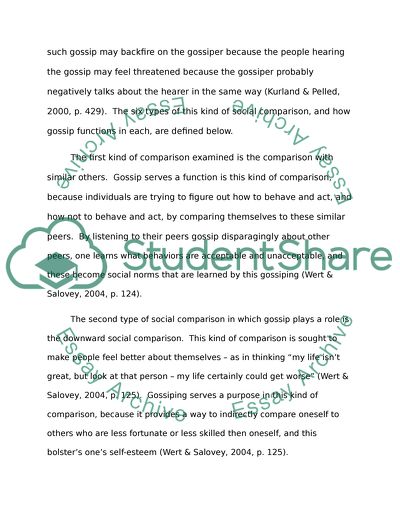Cite this document
(“GOSSIP Essay Example | Topics and Well Written Essays - 1500 words”, n.d.)
Retrieved de https://studentshare.org/environmental-studies/1407283-gossip
Retrieved de https://studentshare.org/environmental-studies/1407283-gossip
(GOSSIP Essay Example | Topics and Well Written Essays - 1500 Words)
https://studentshare.org/environmental-studies/1407283-gossip.
https://studentshare.org/environmental-studies/1407283-gossip.
“GOSSIP Essay Example | Topics and Well Written Essays - 1500 Words”, n.d. https://studentshare.org/environmental-studies/1407283-gossip.


